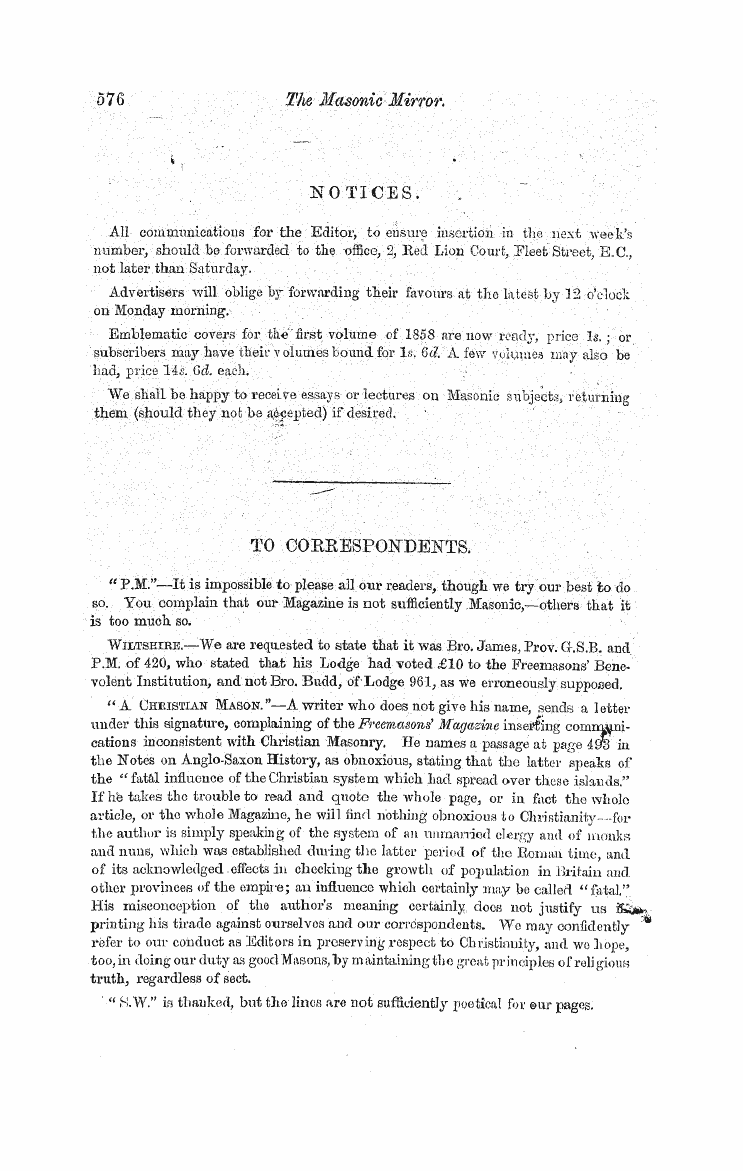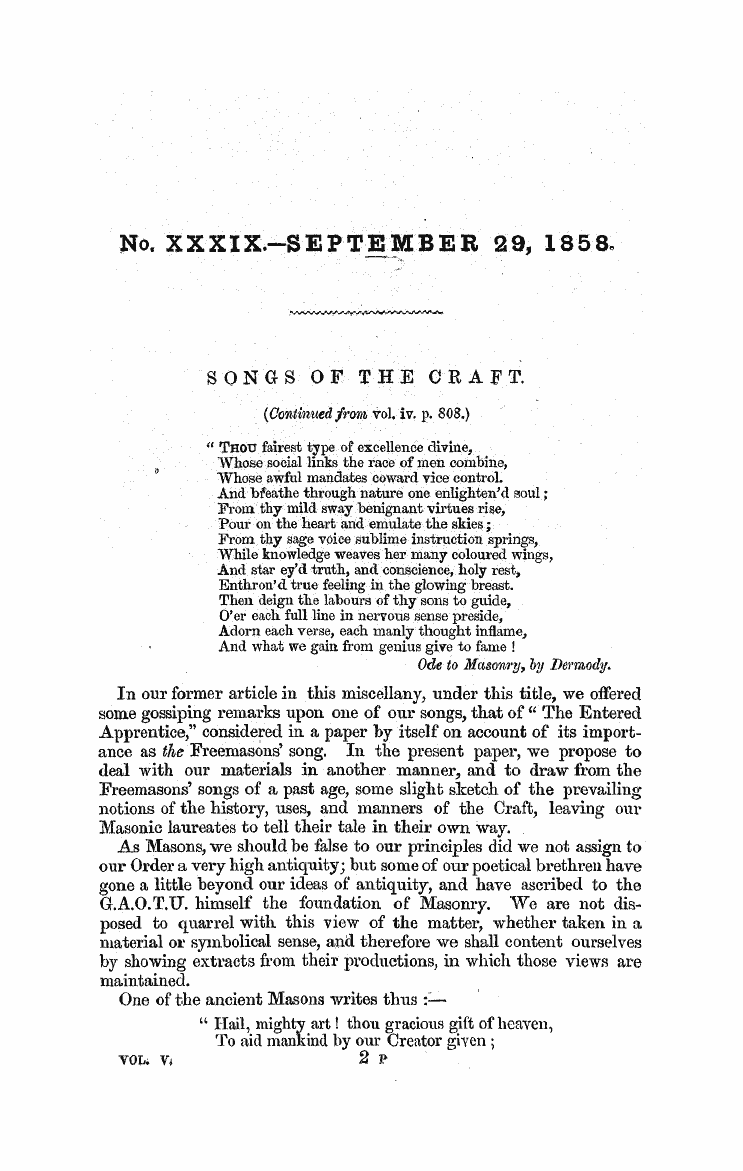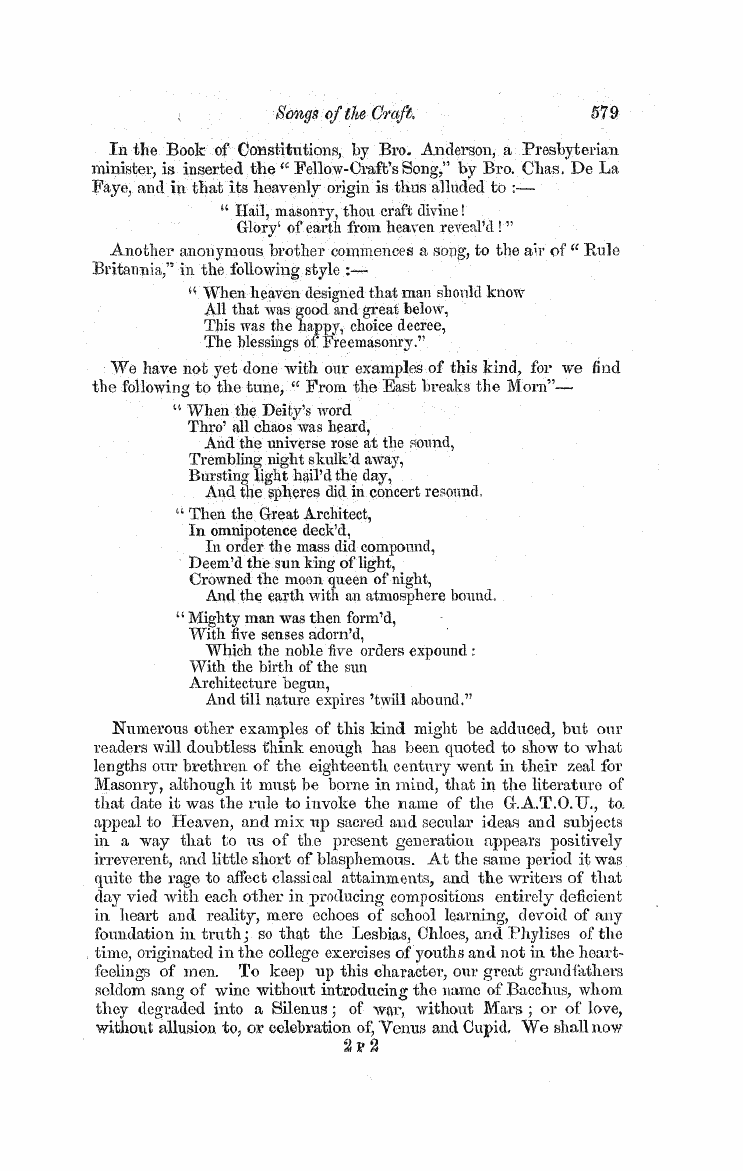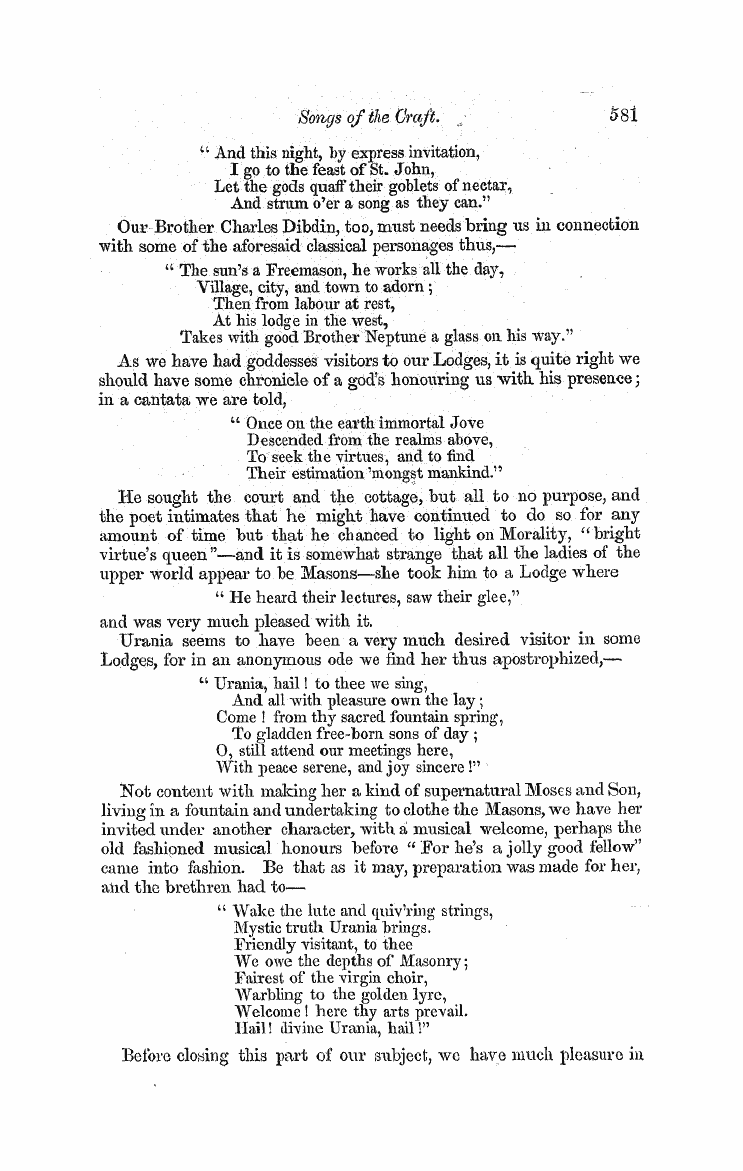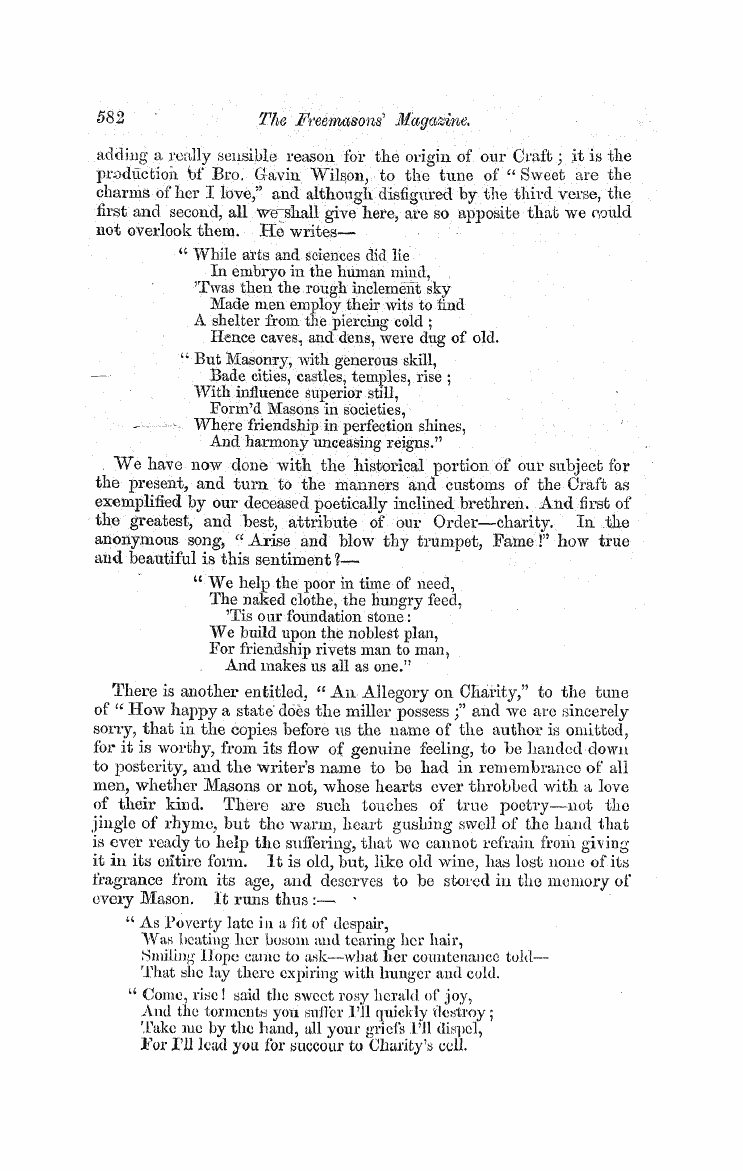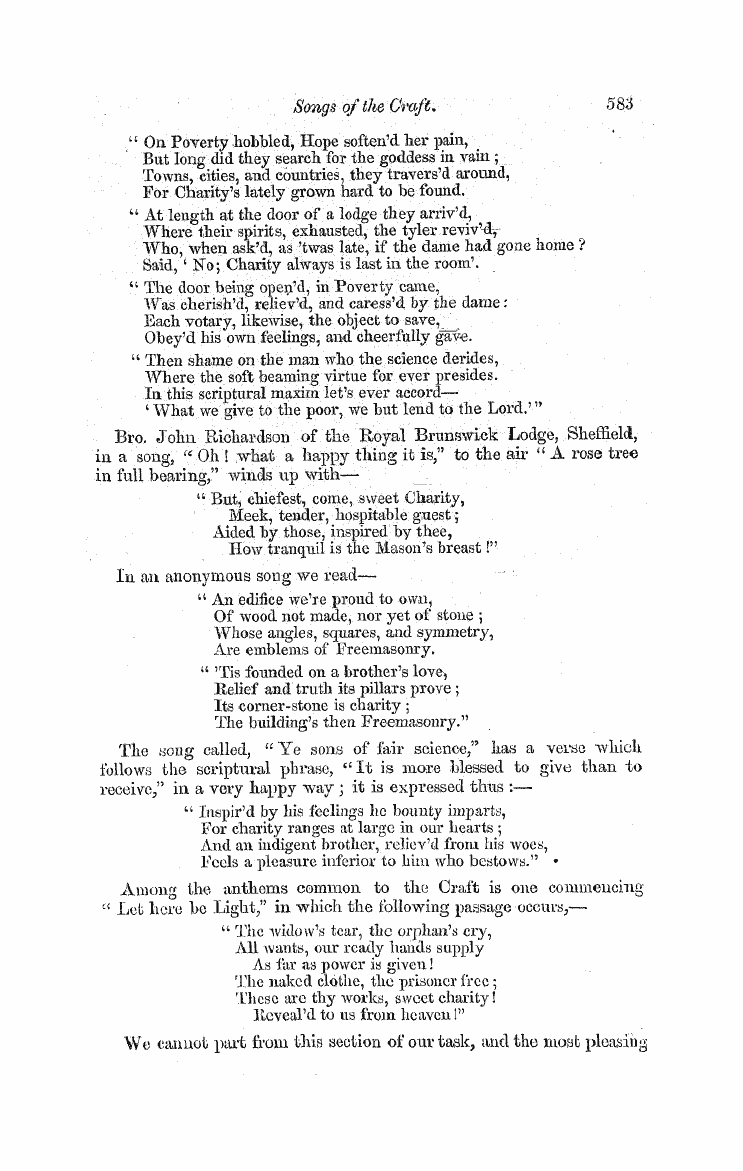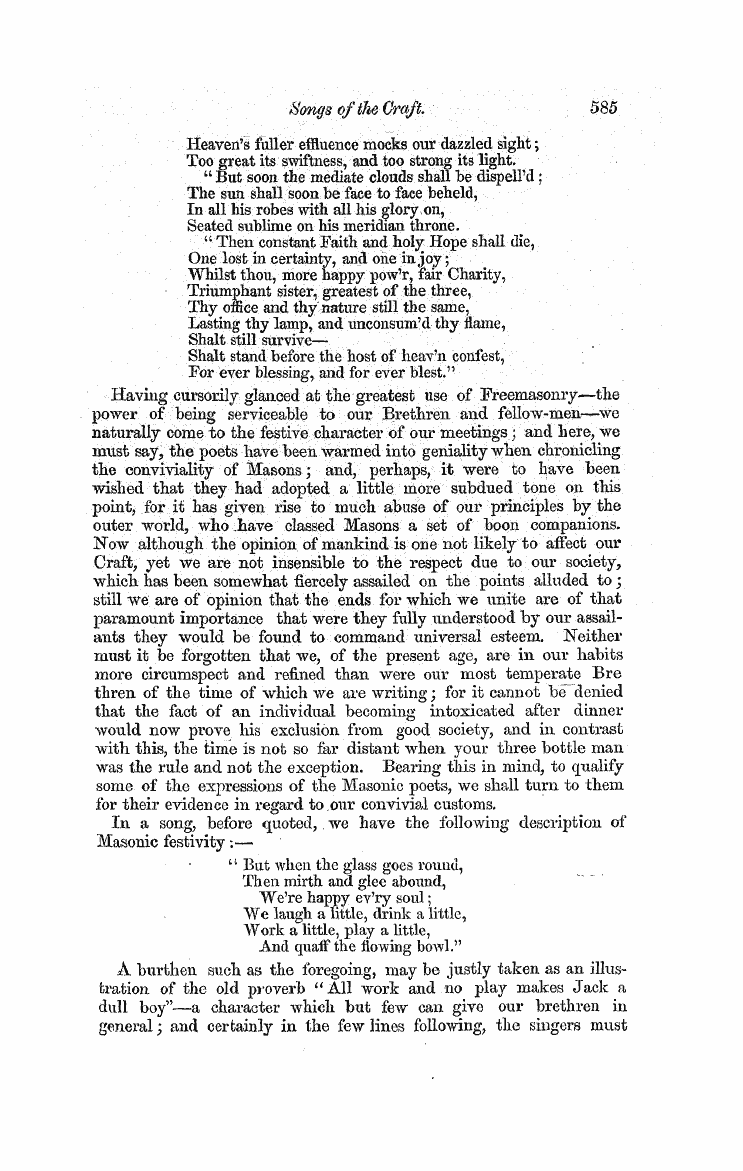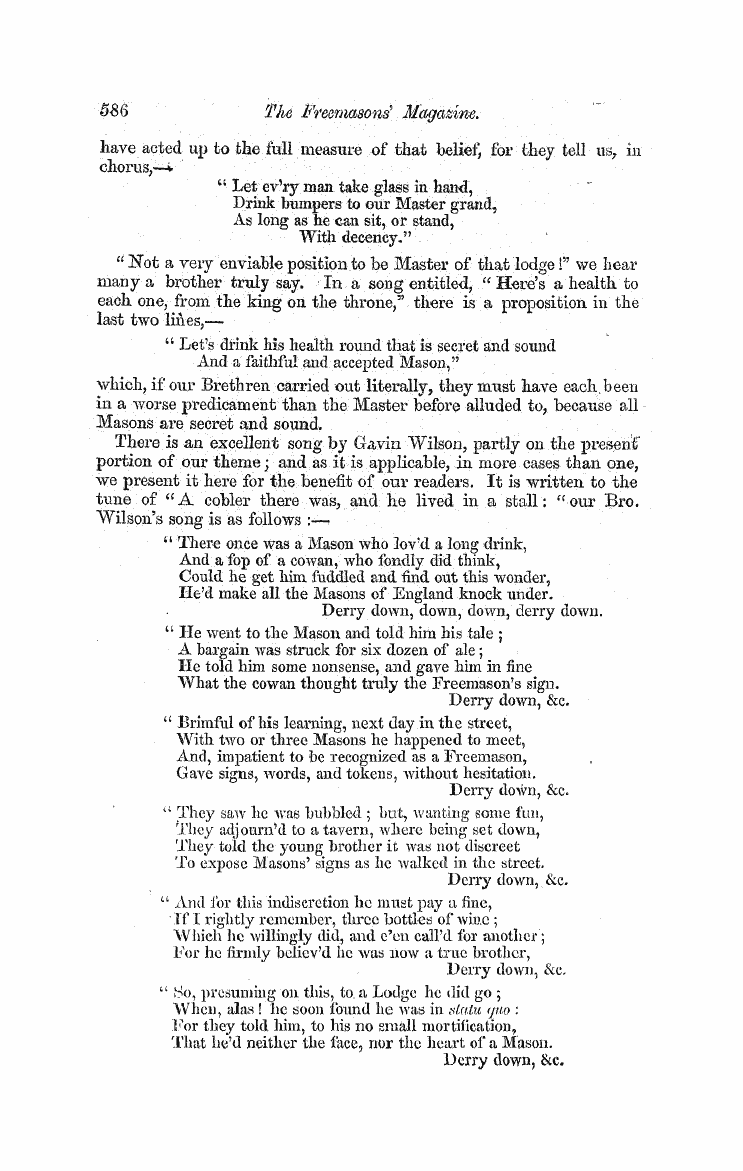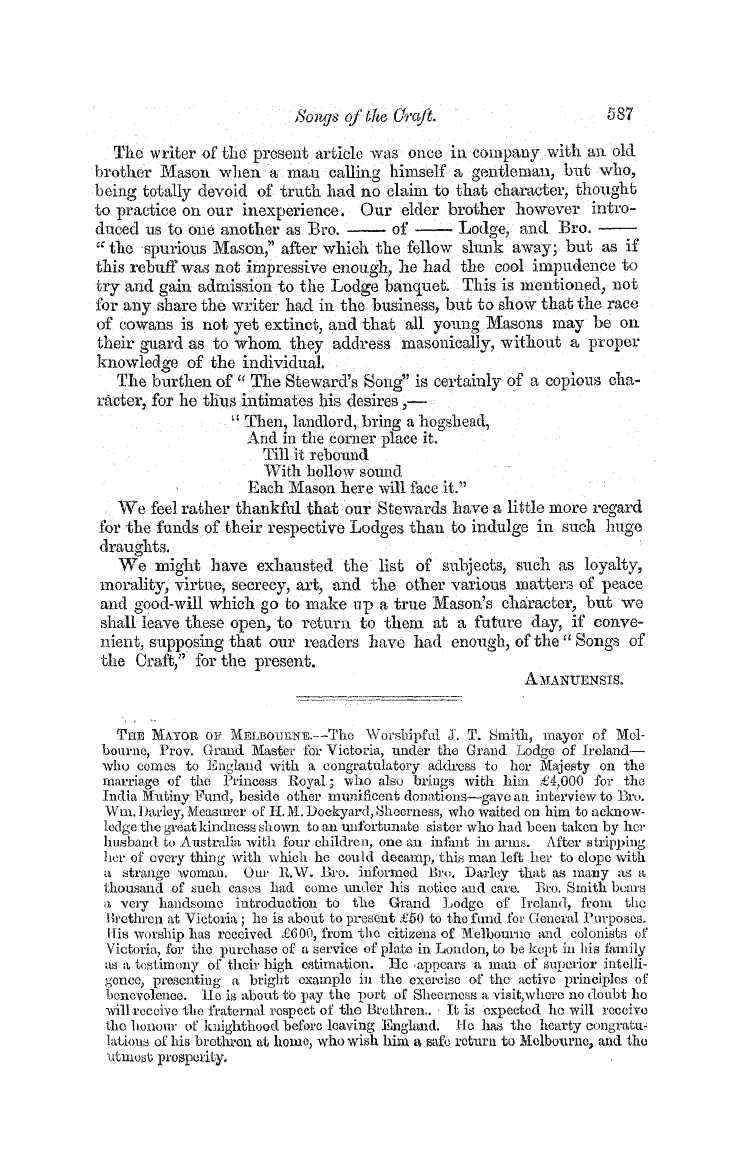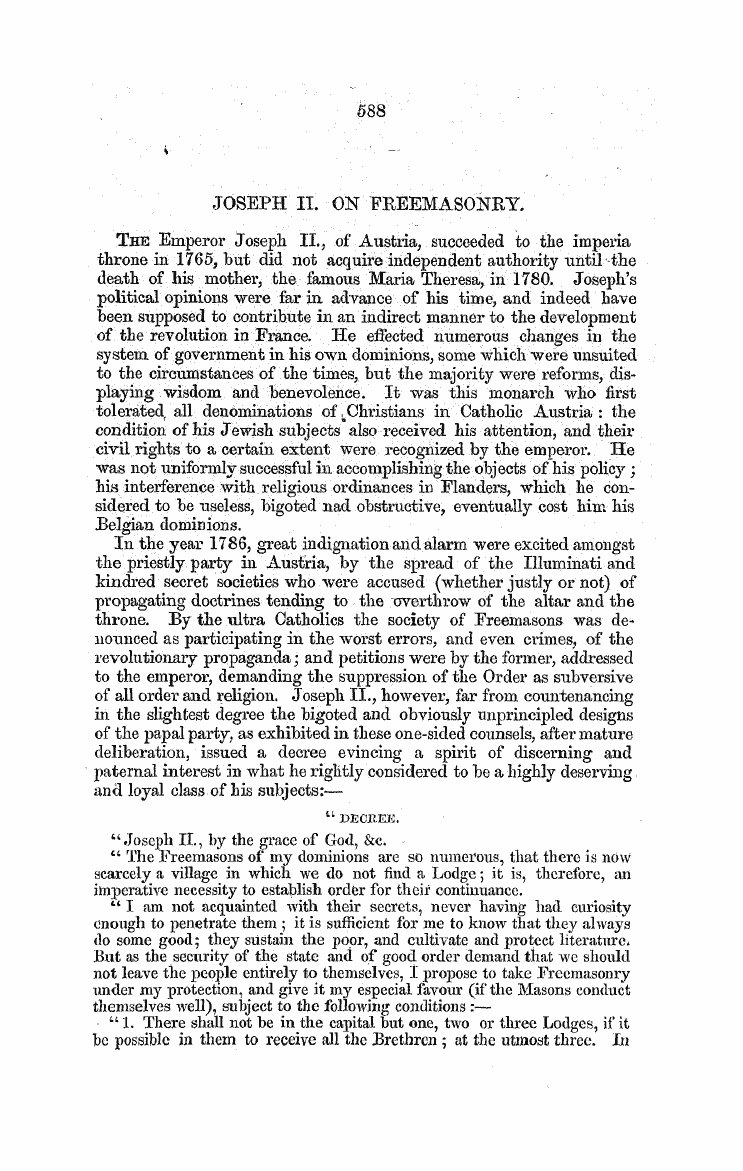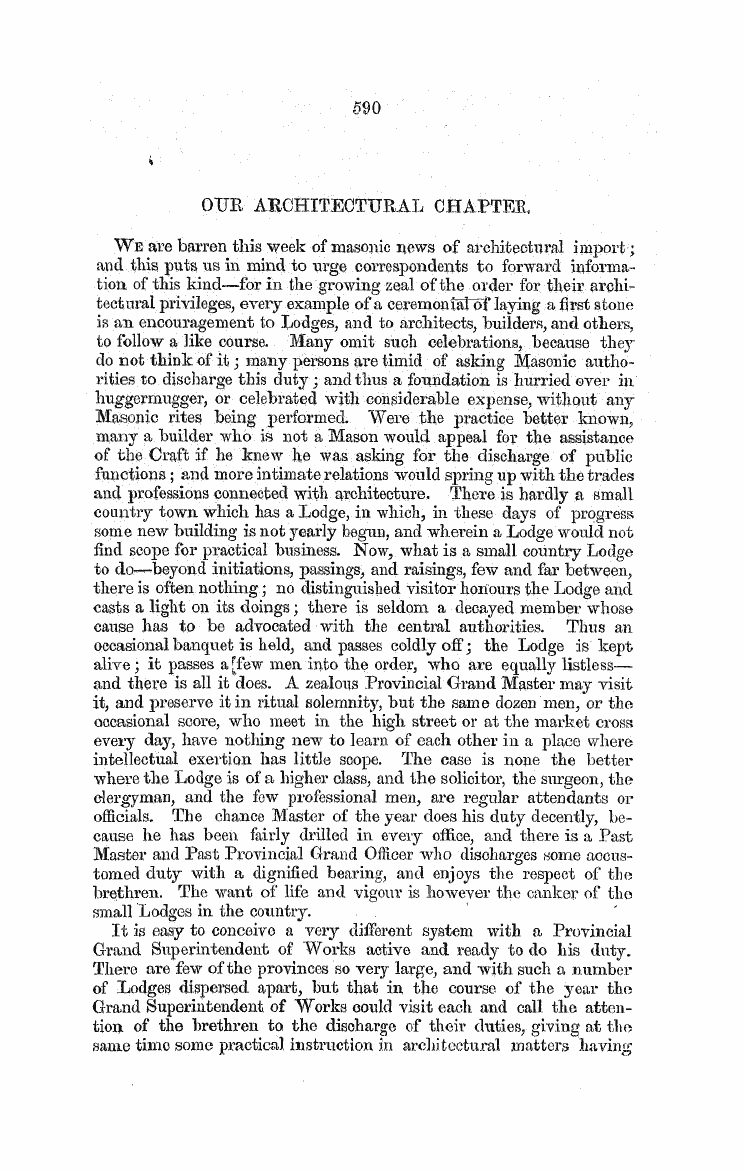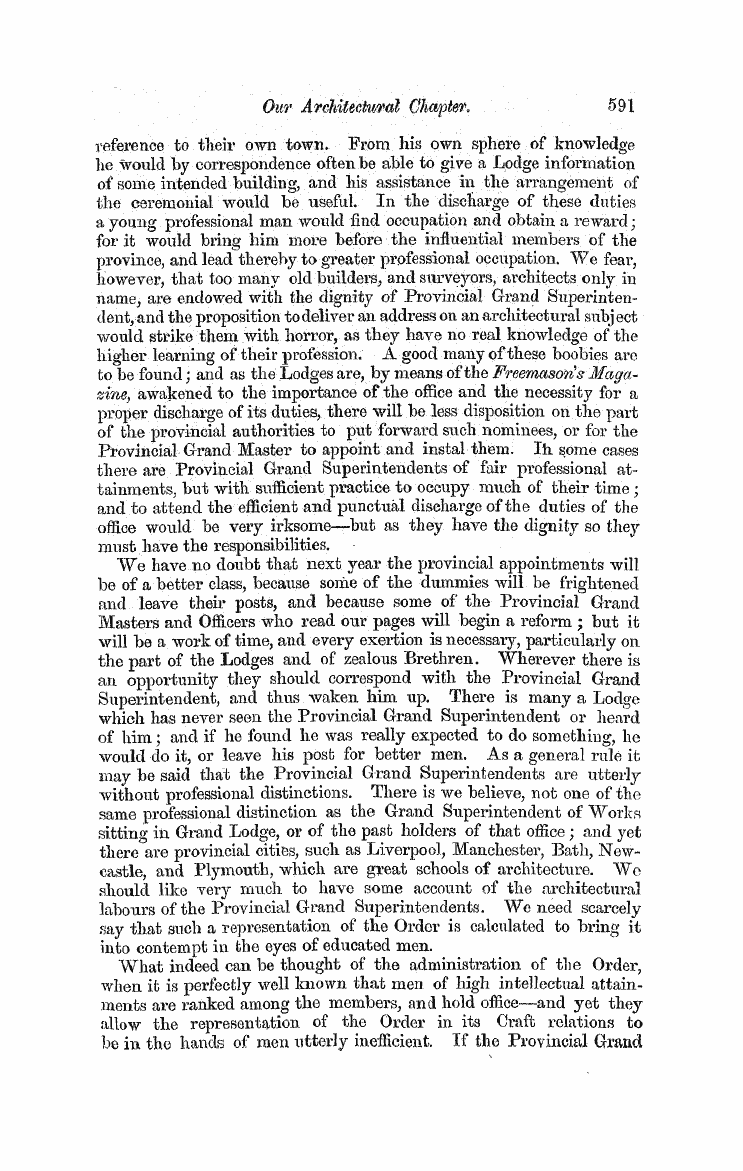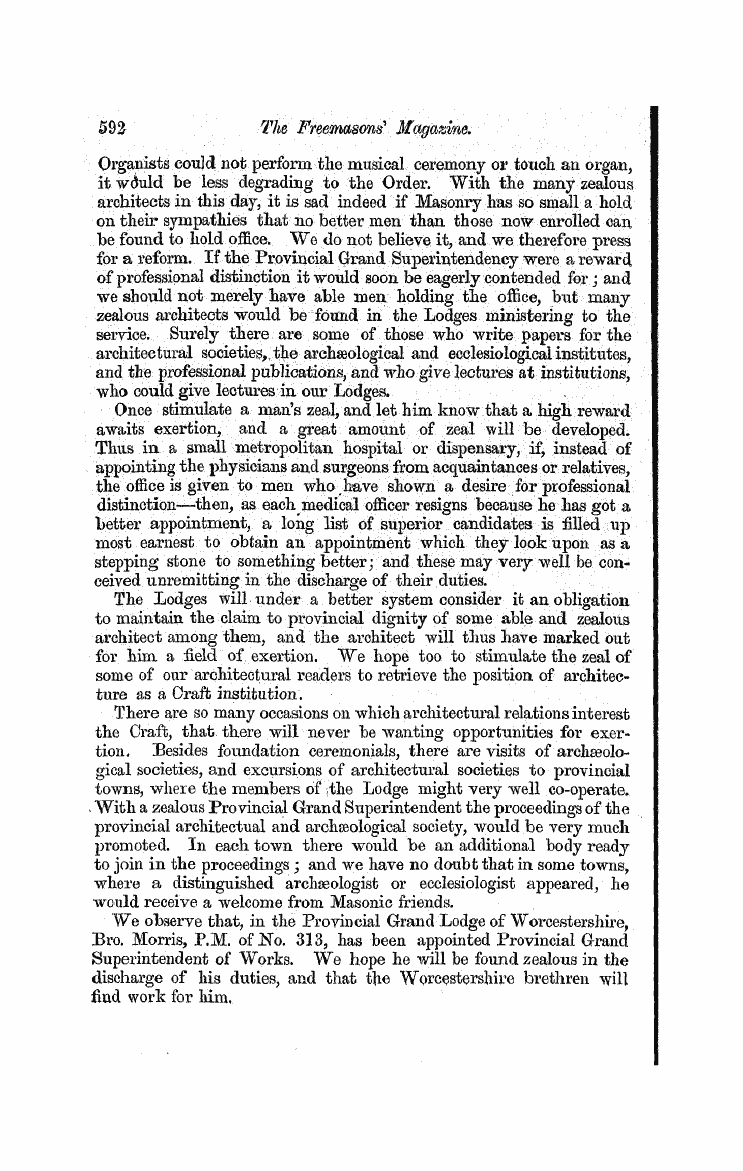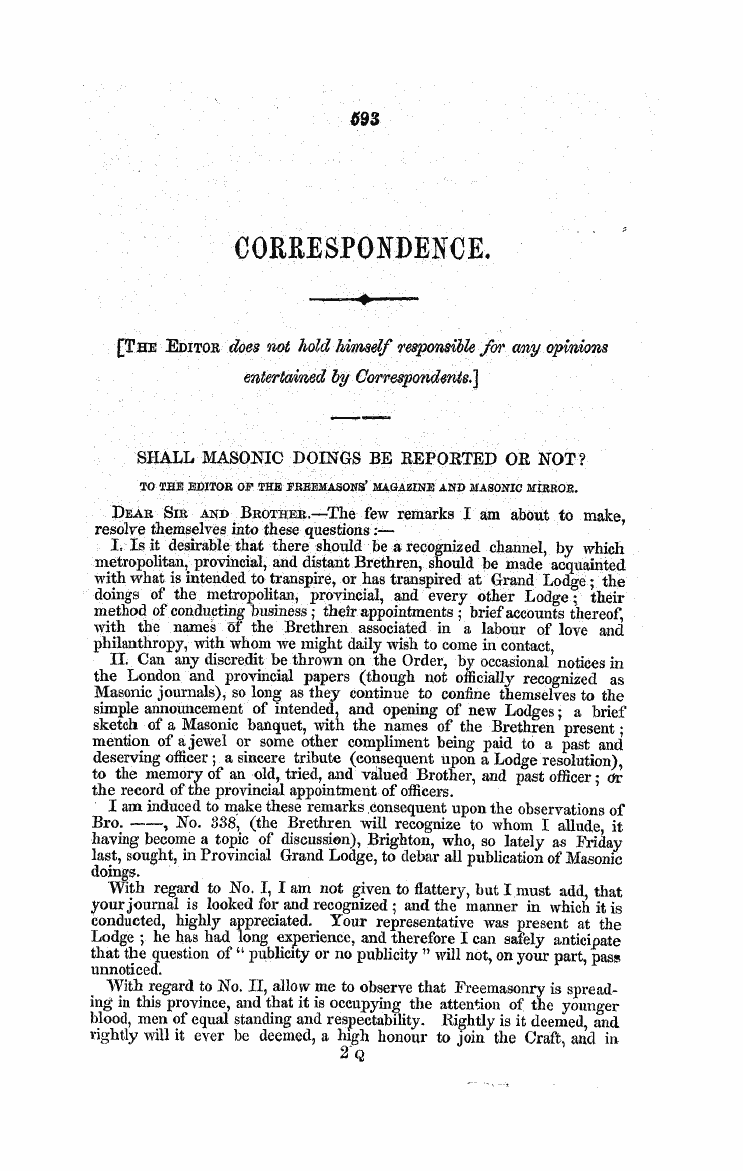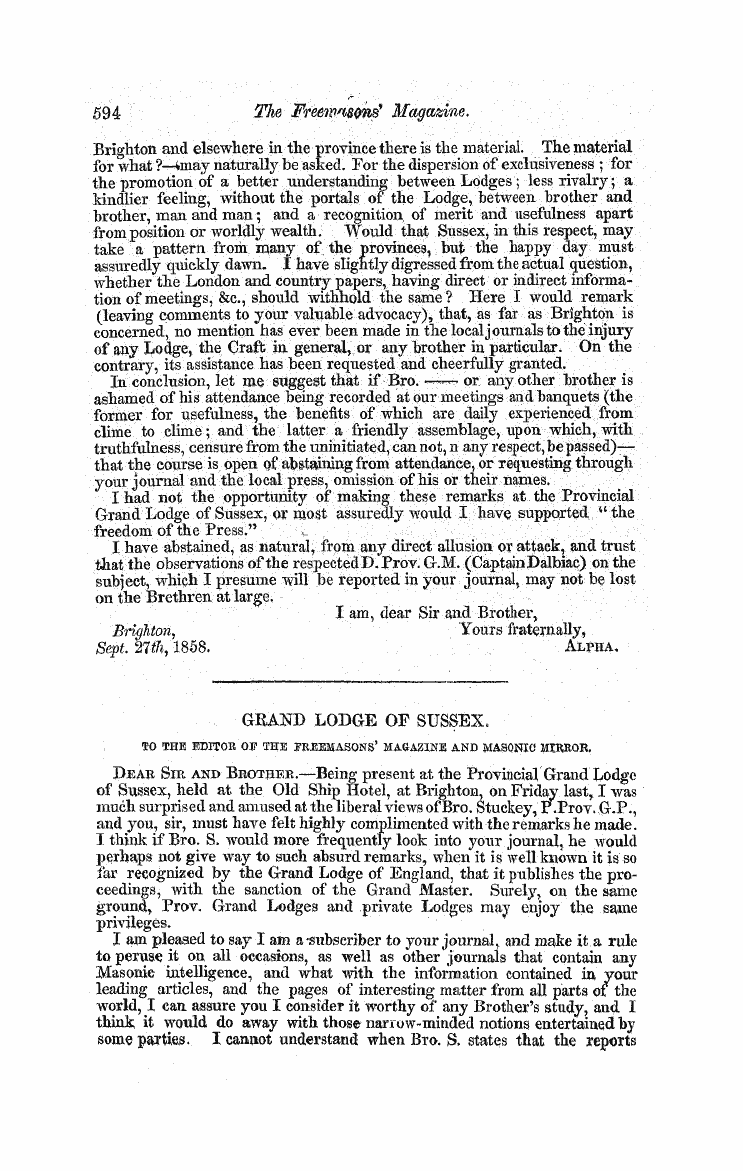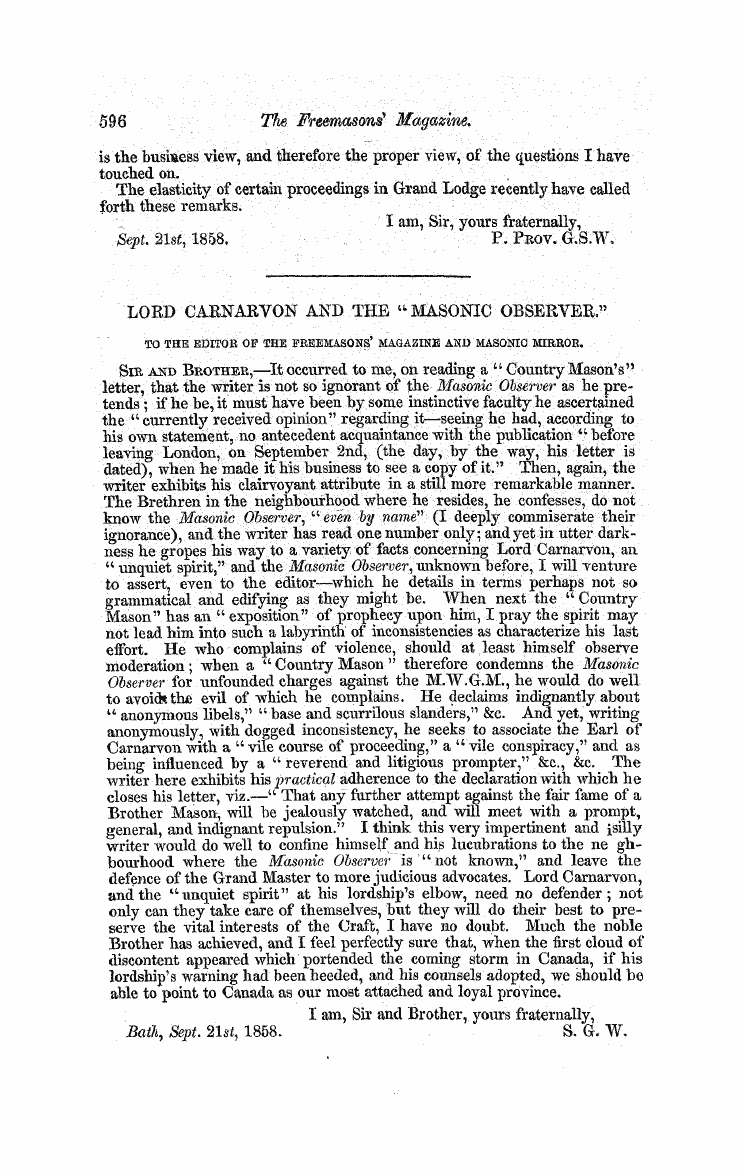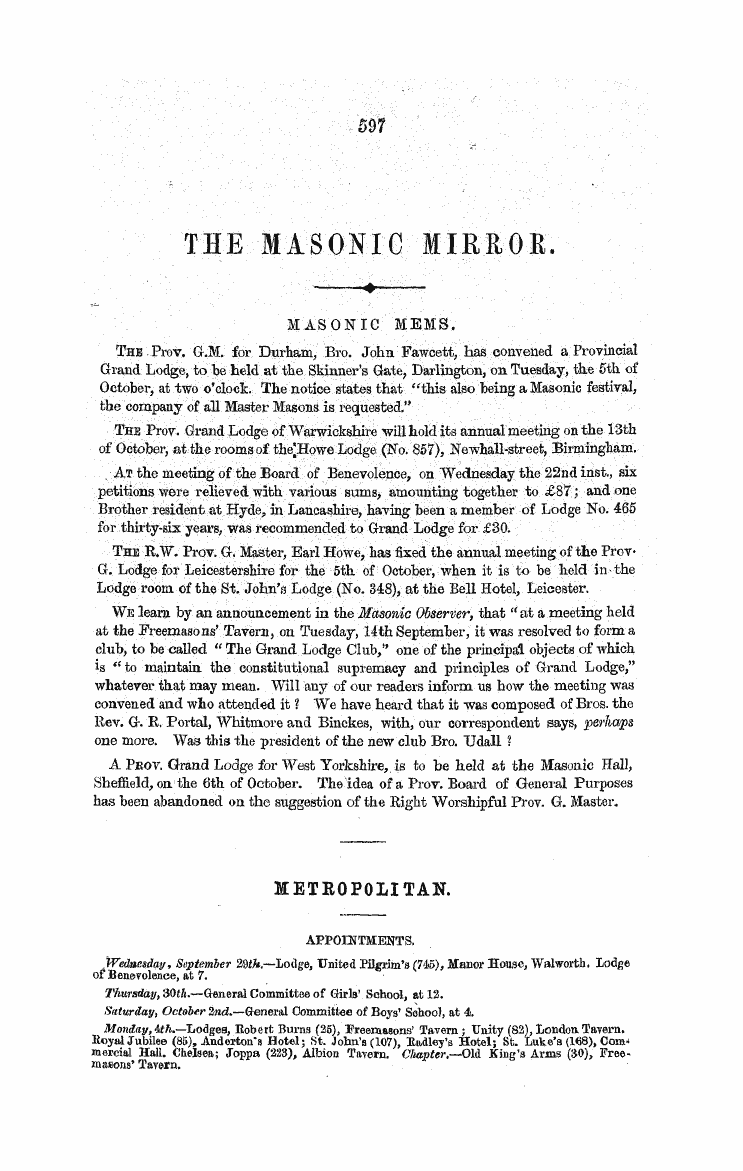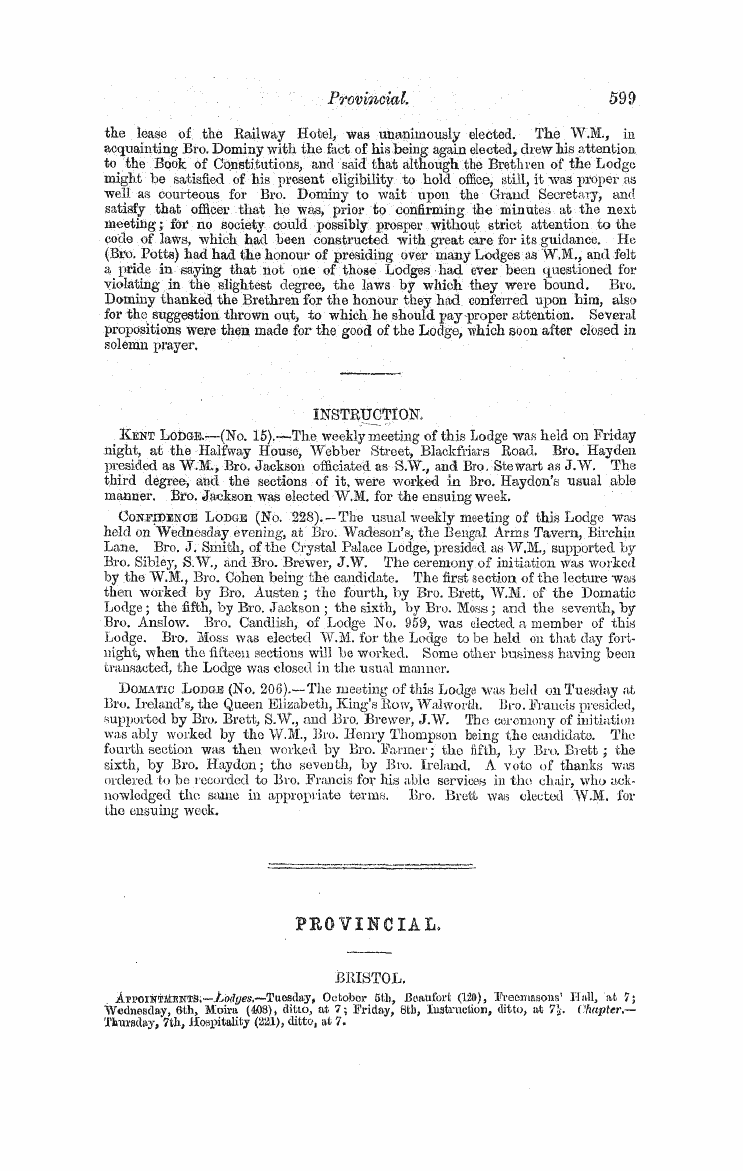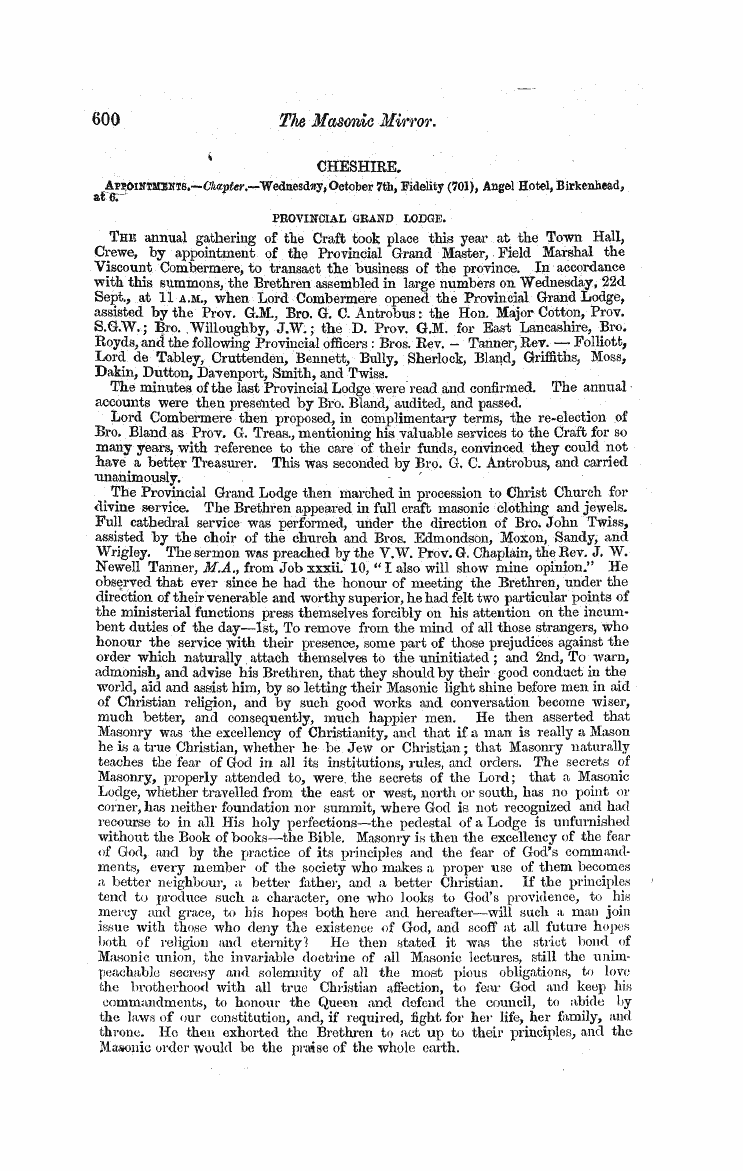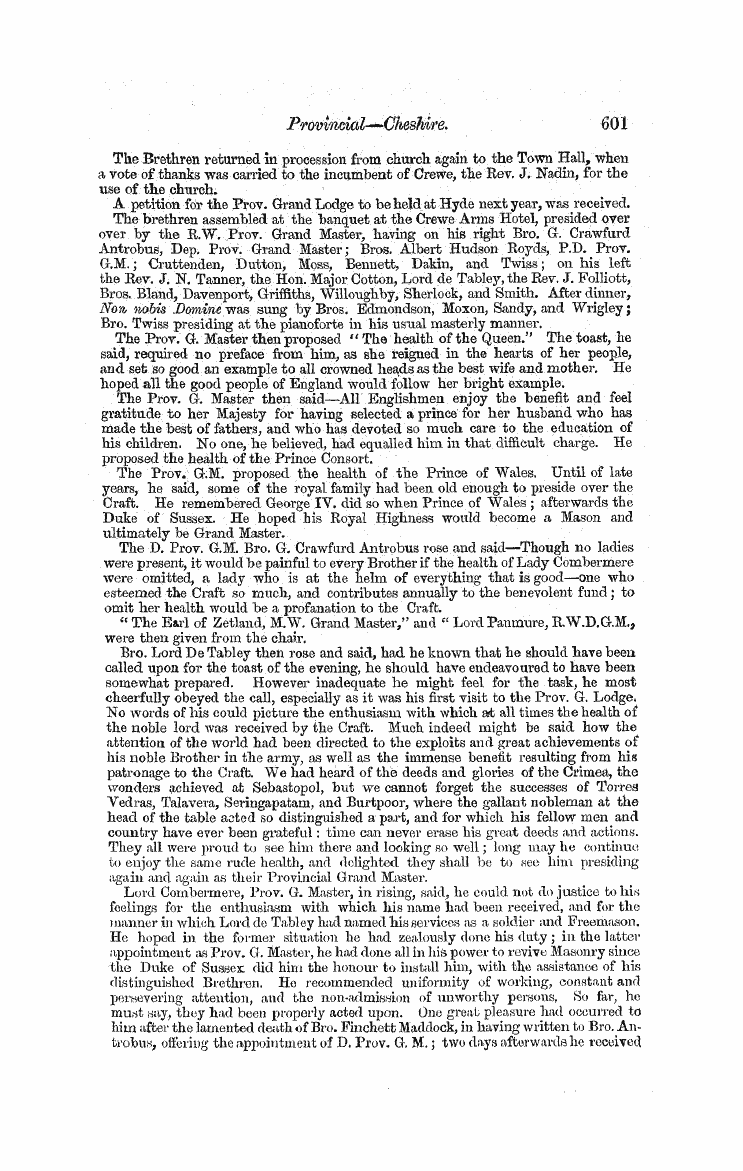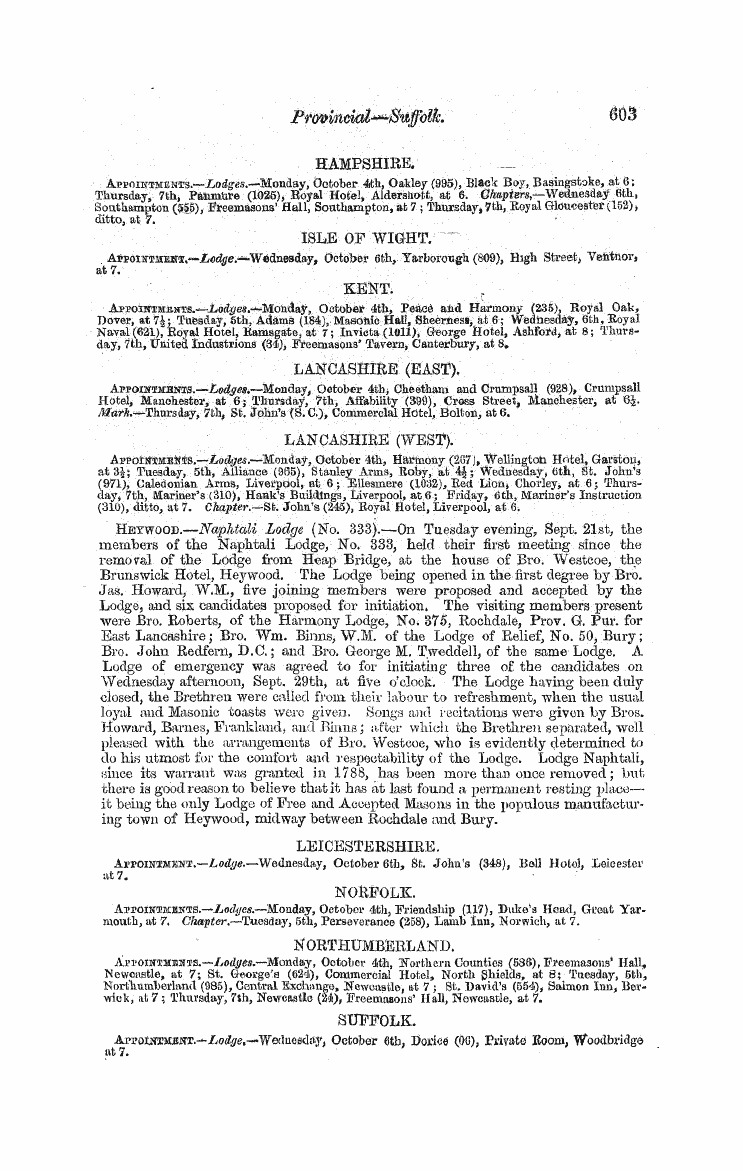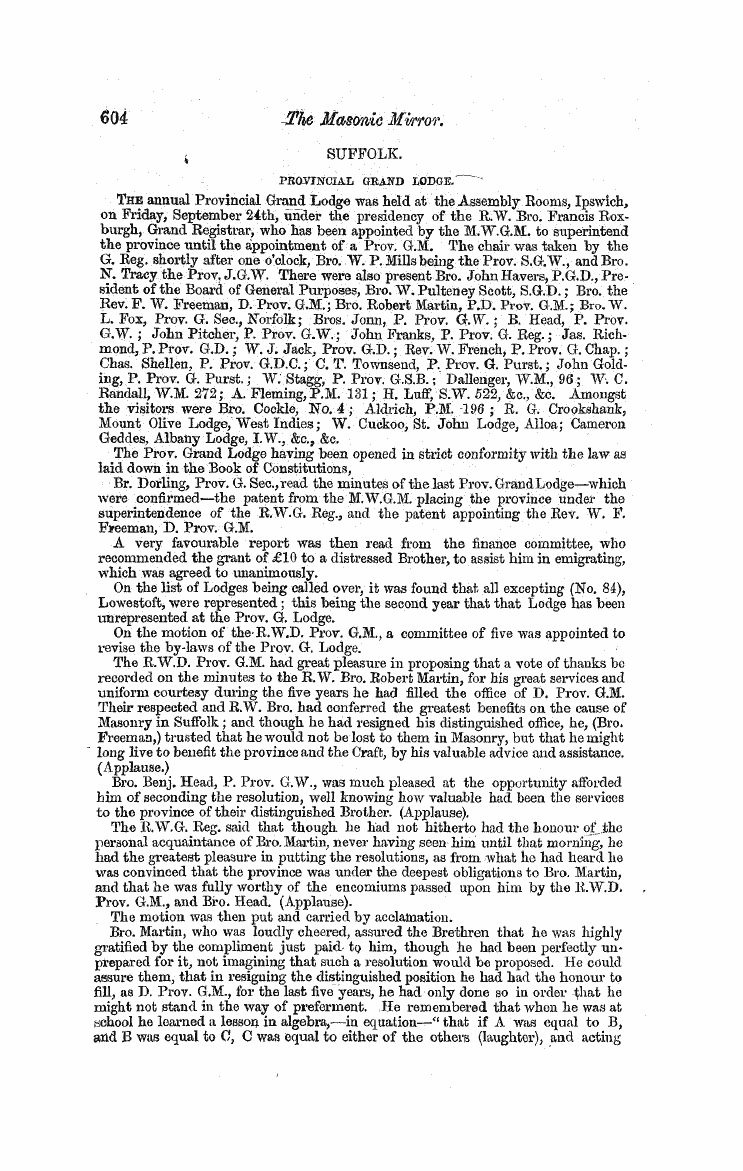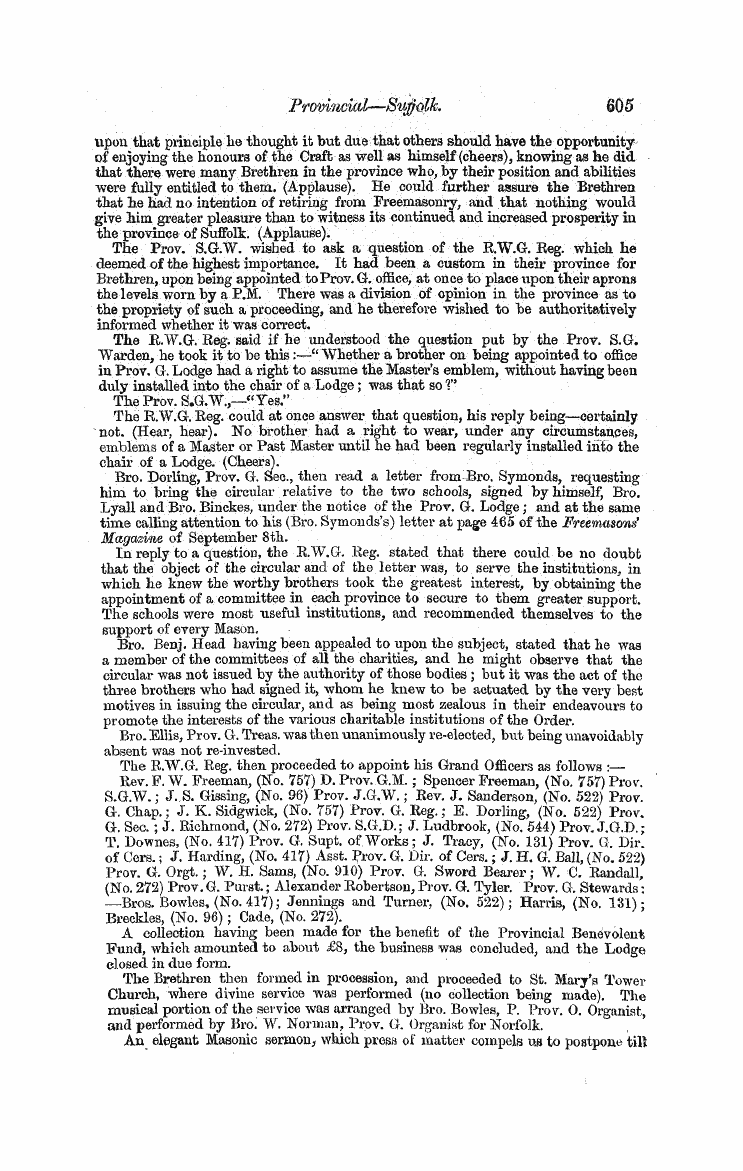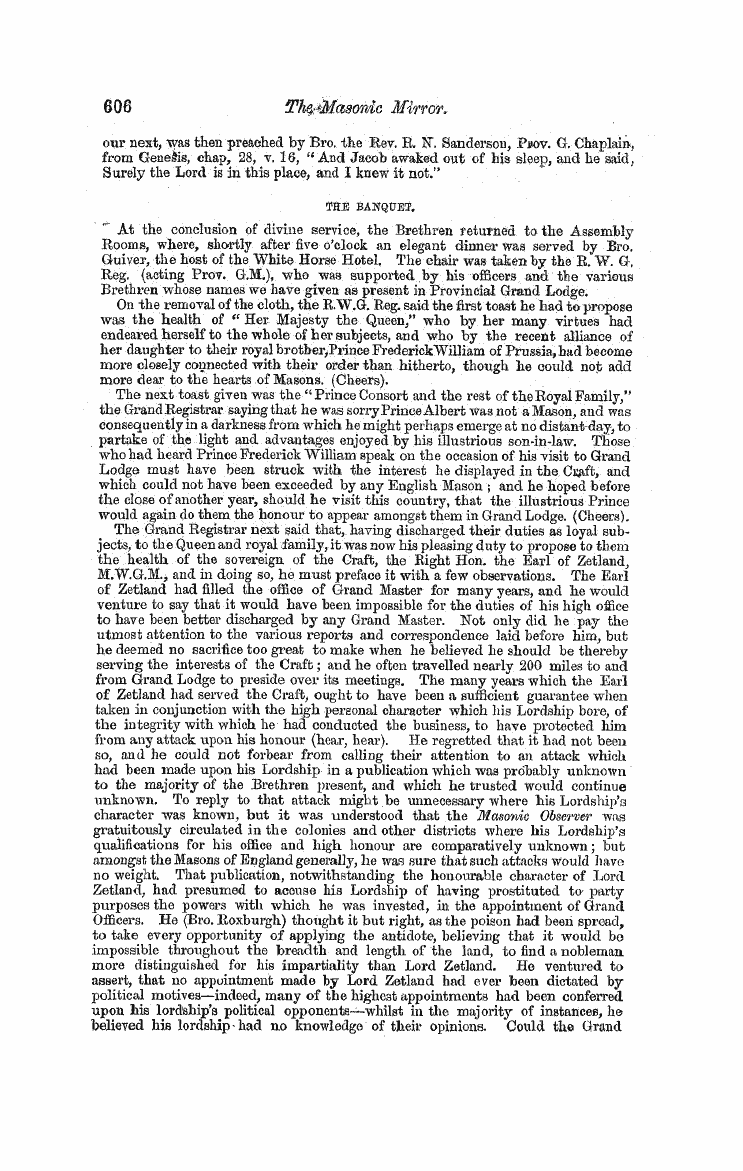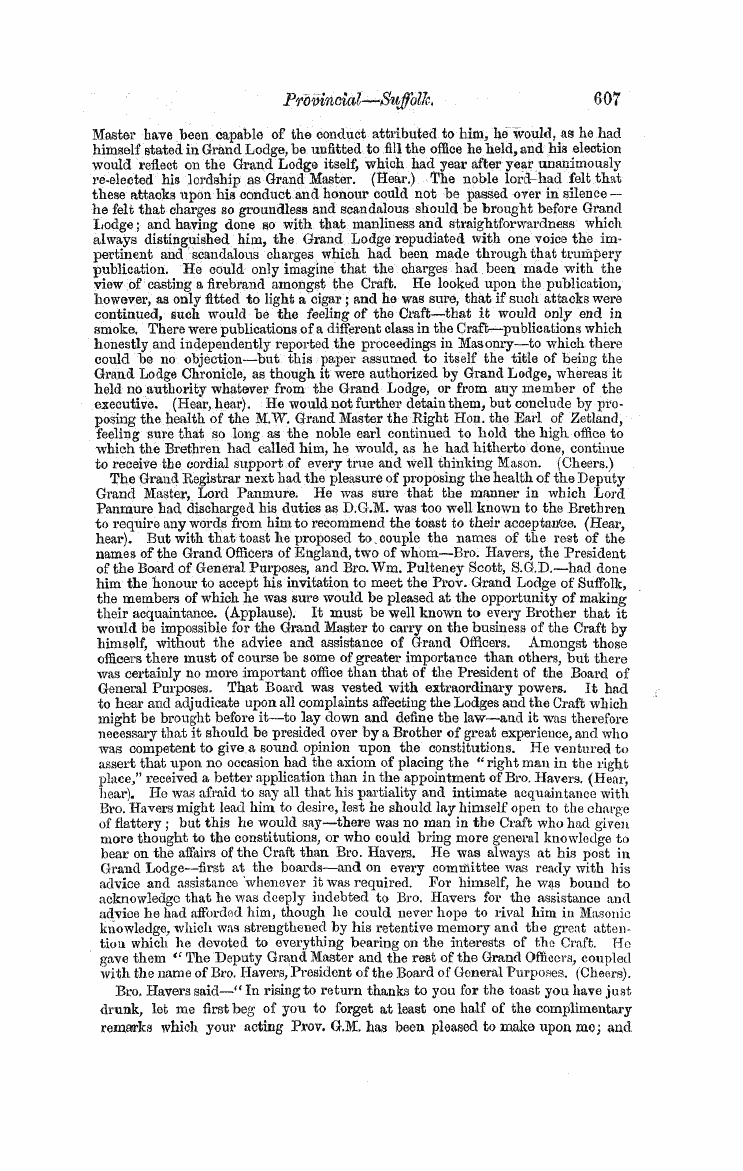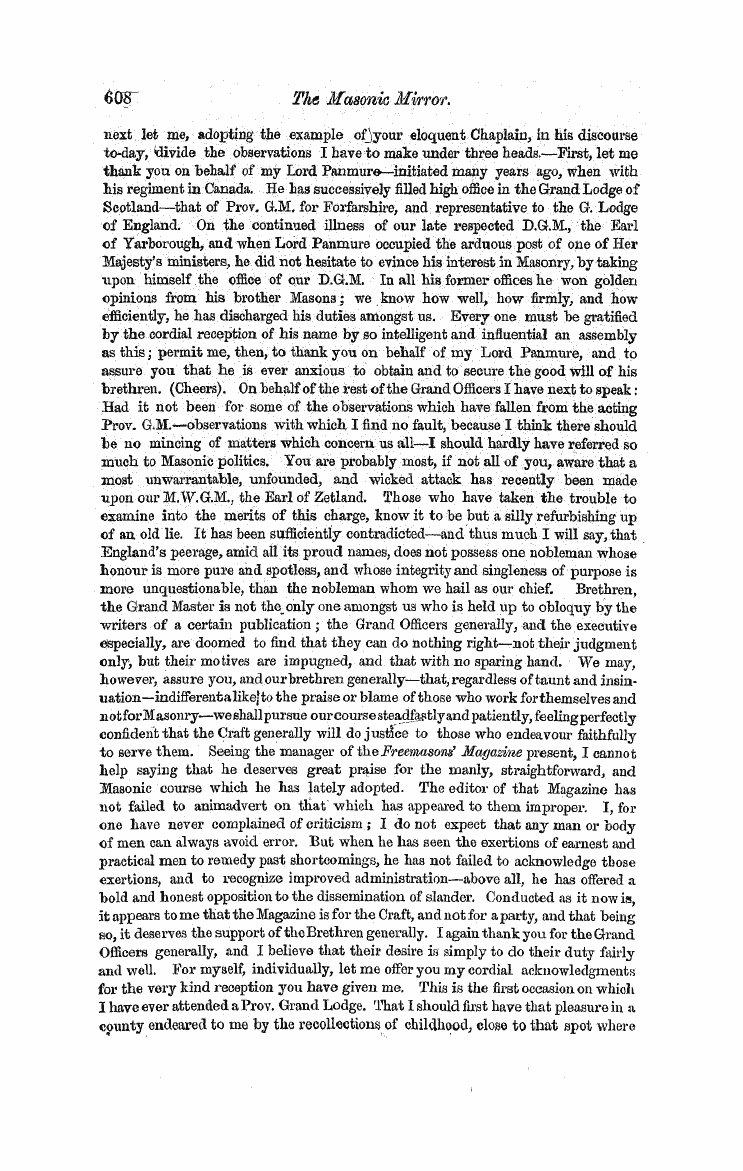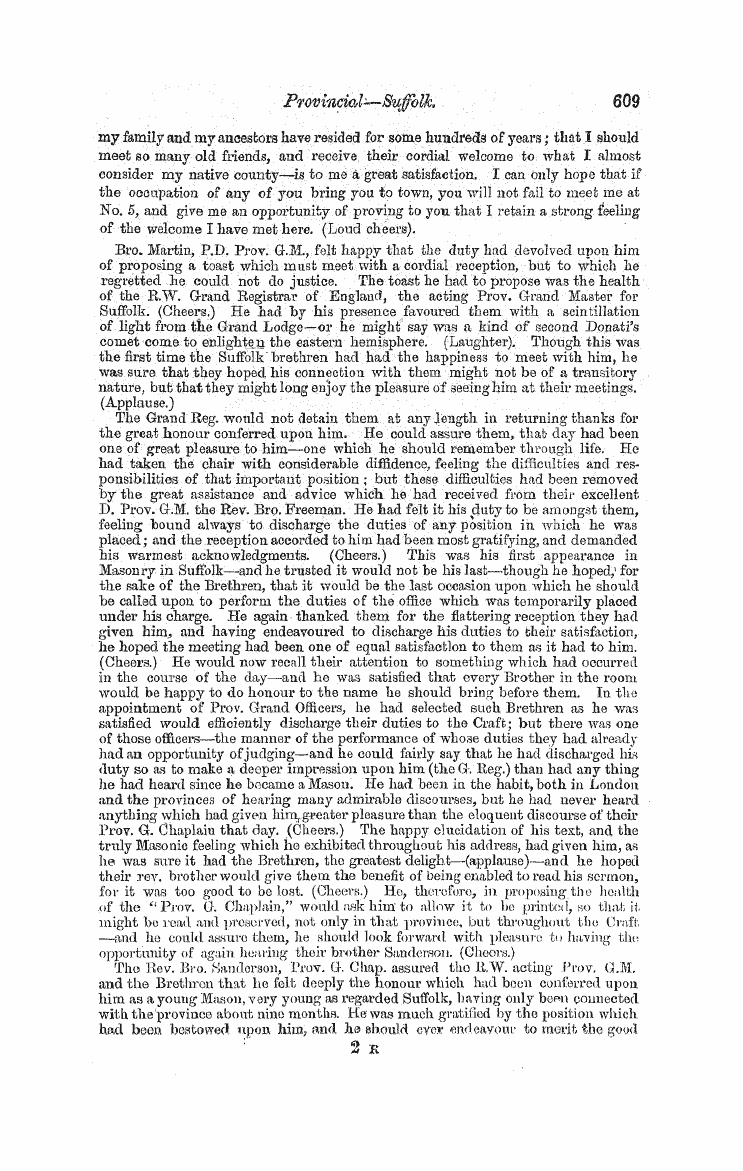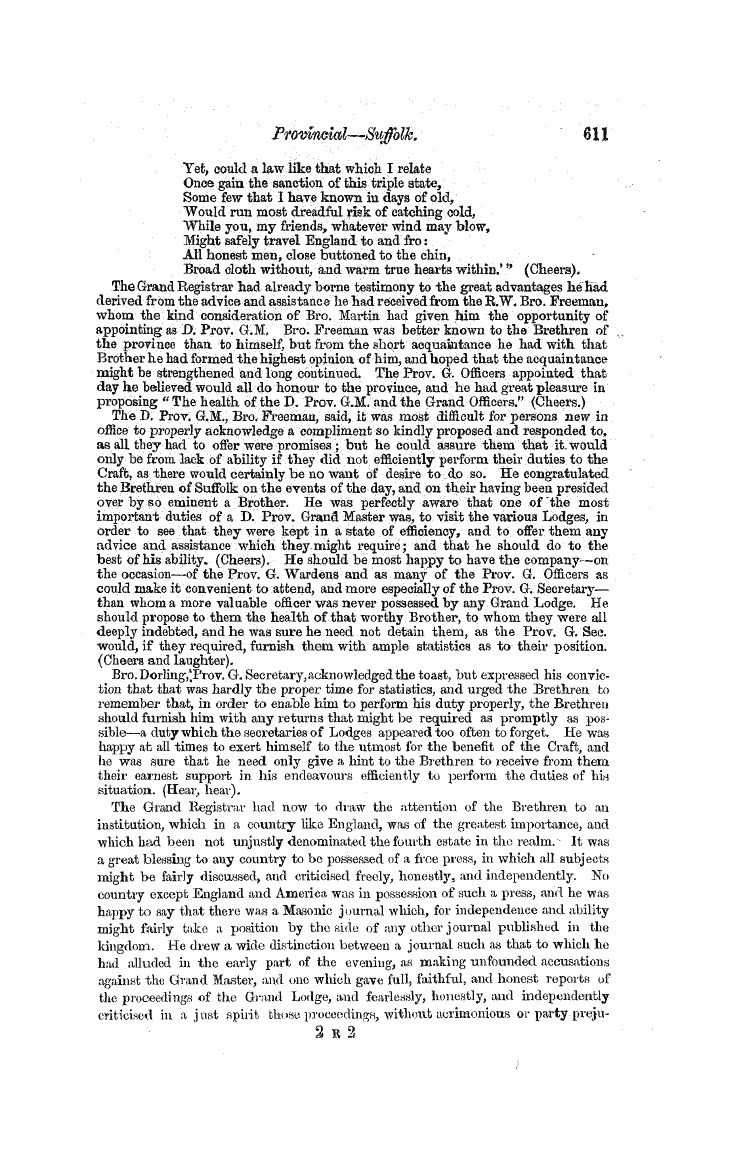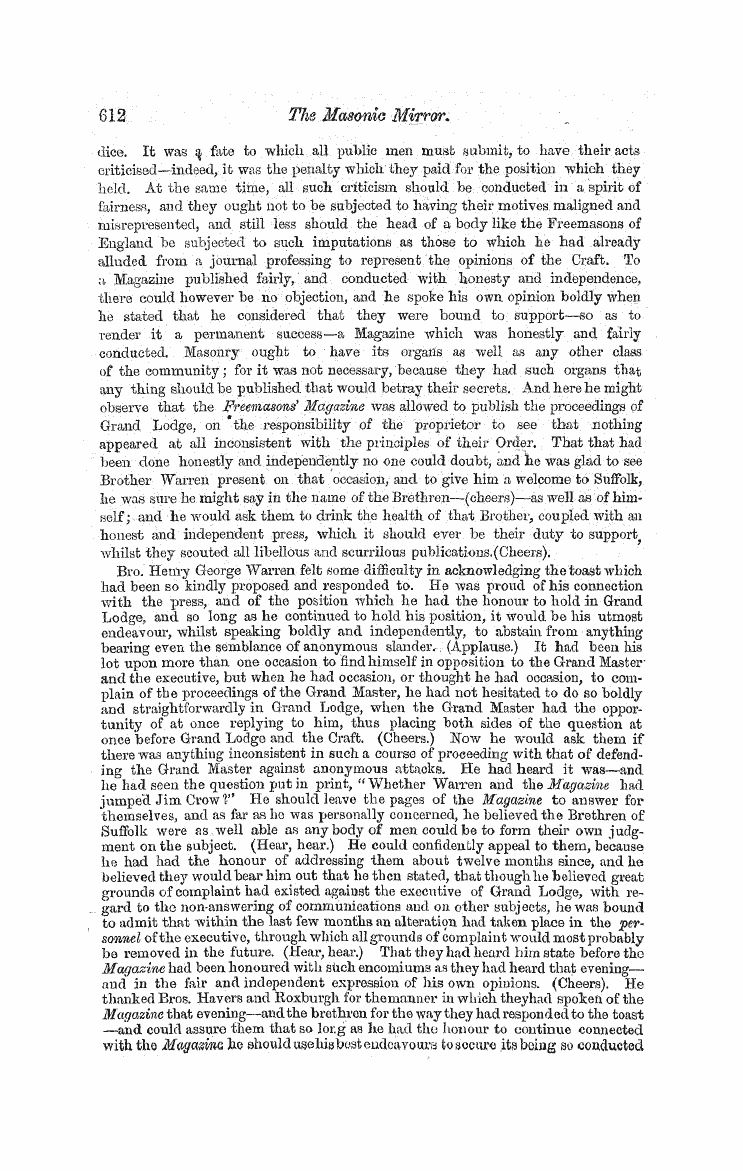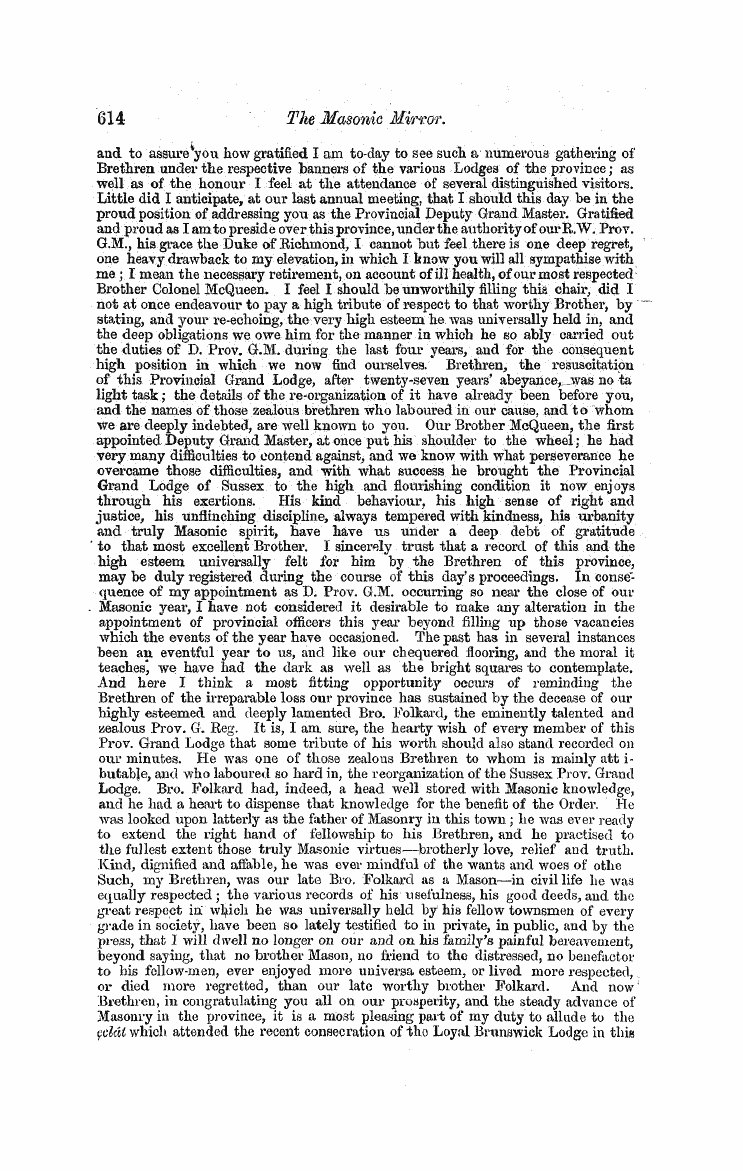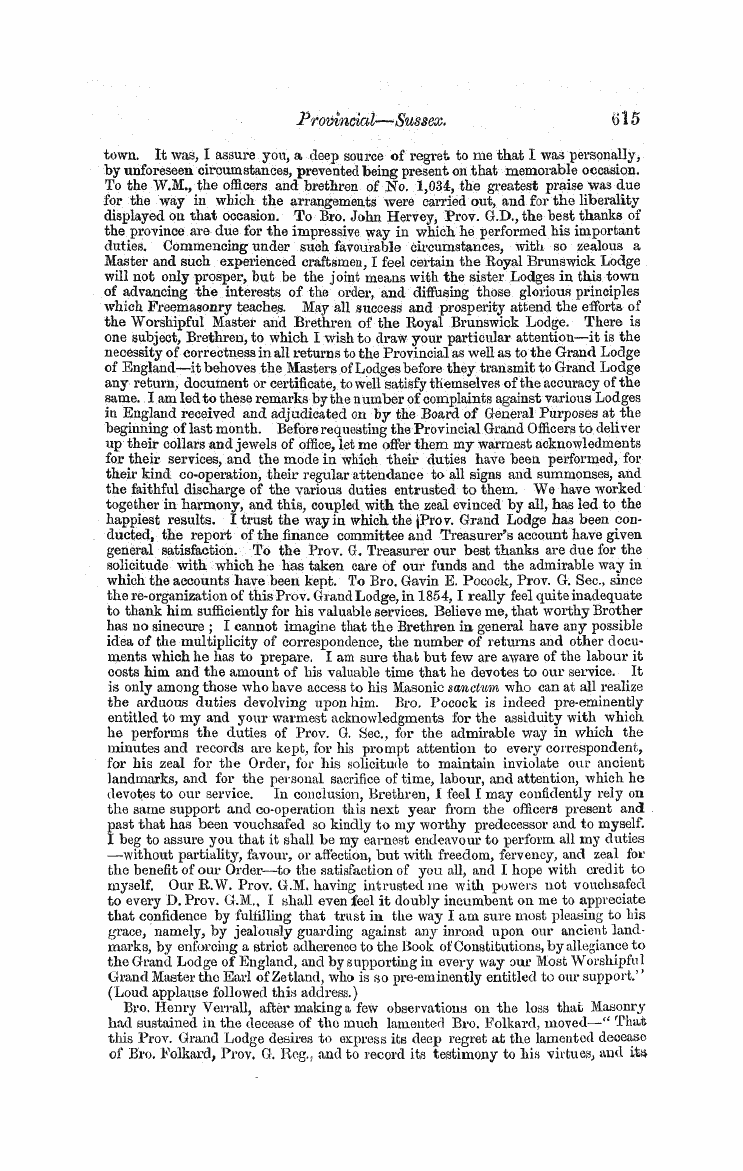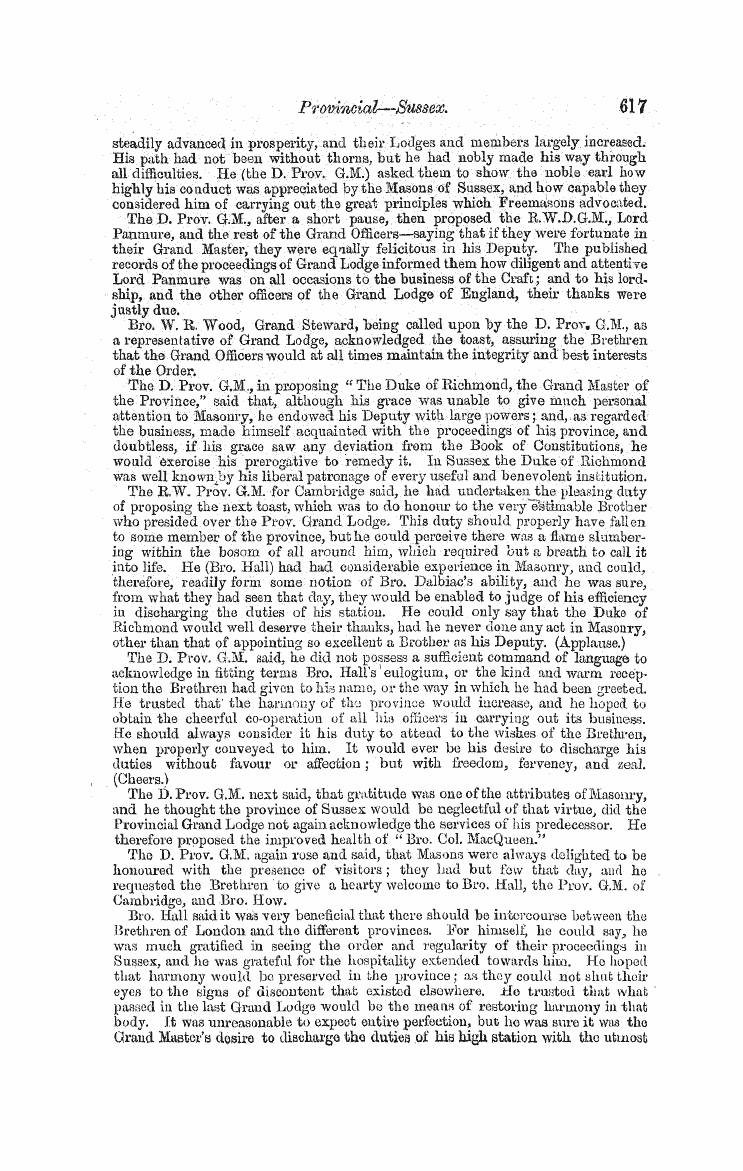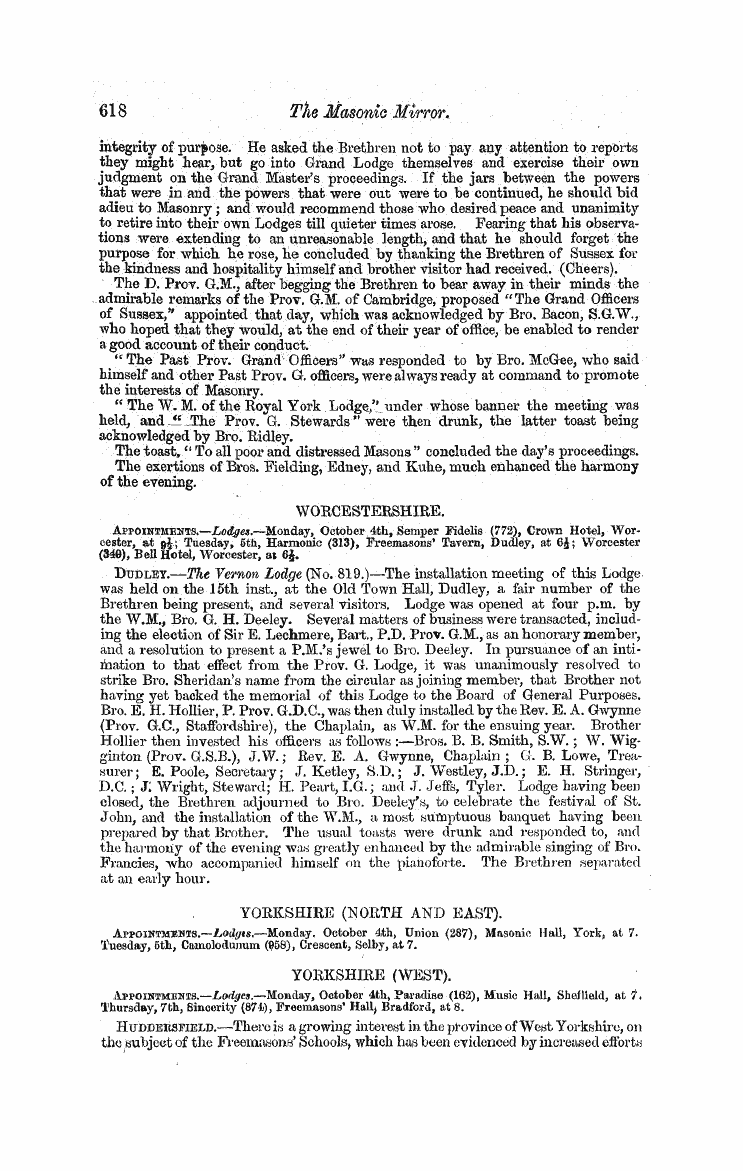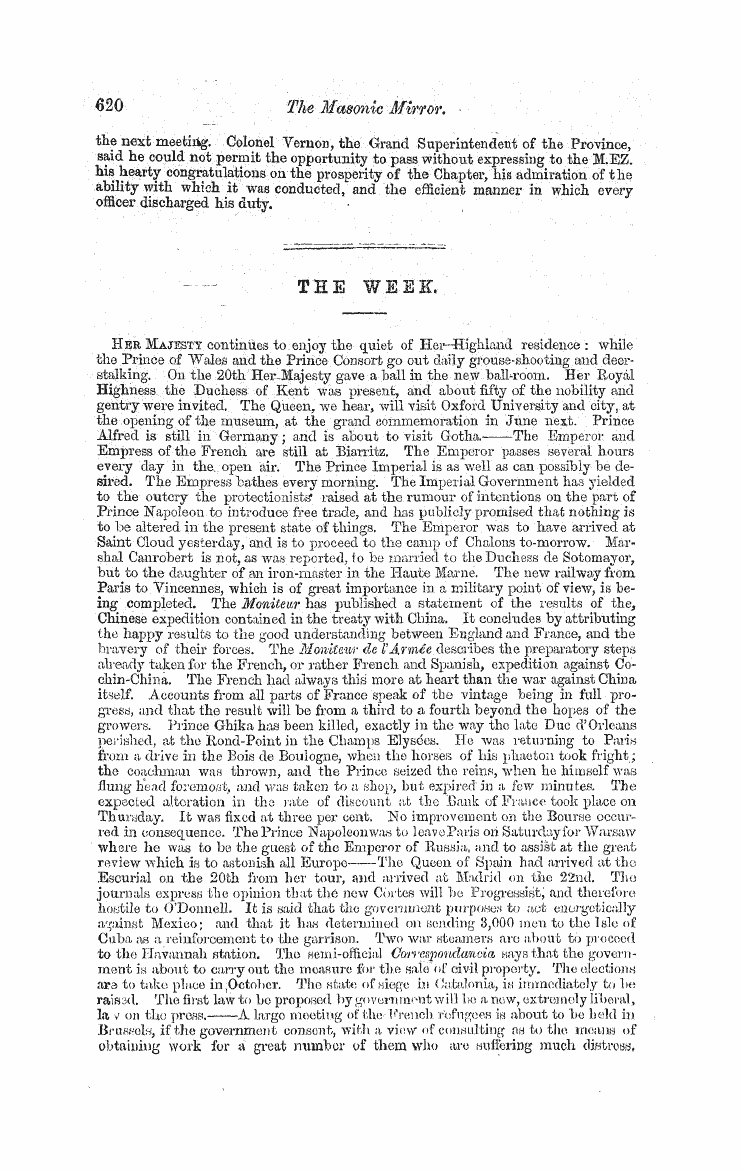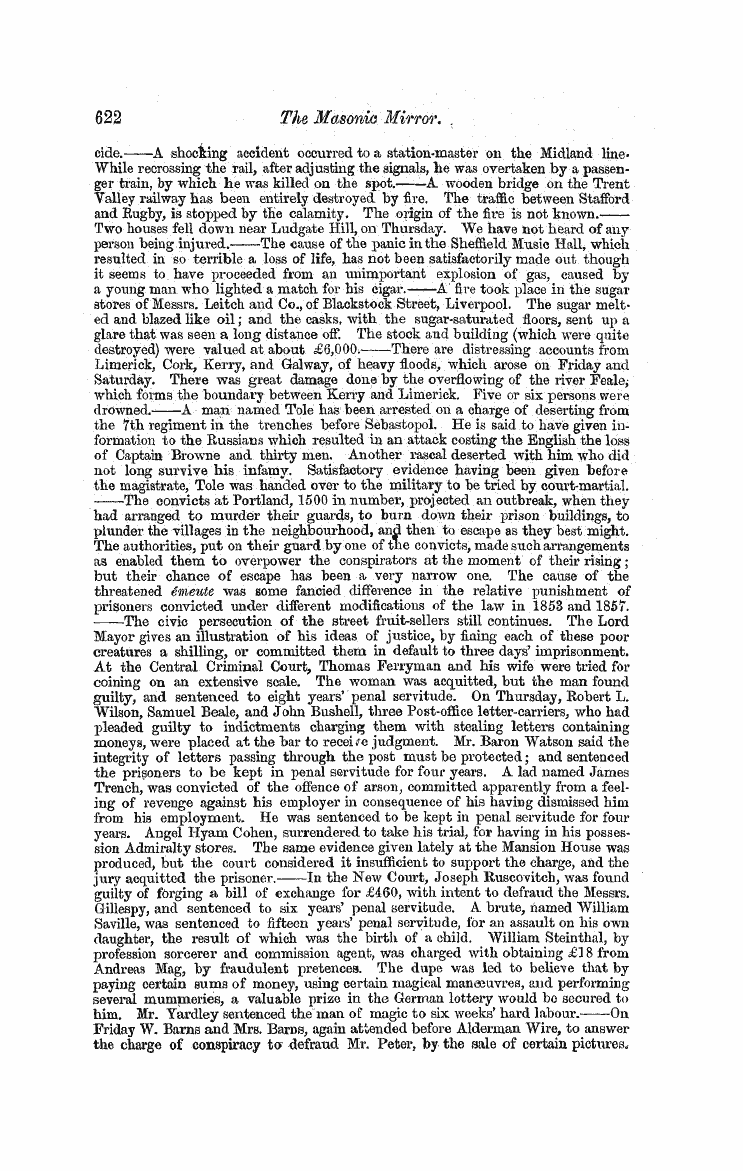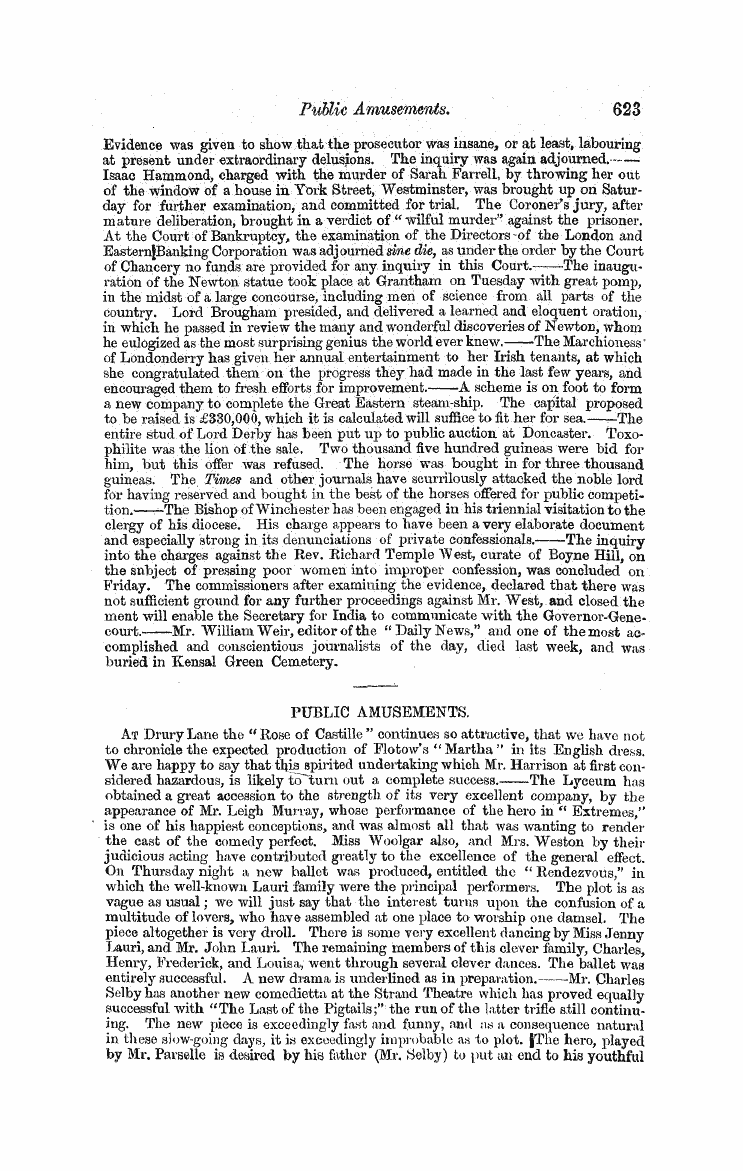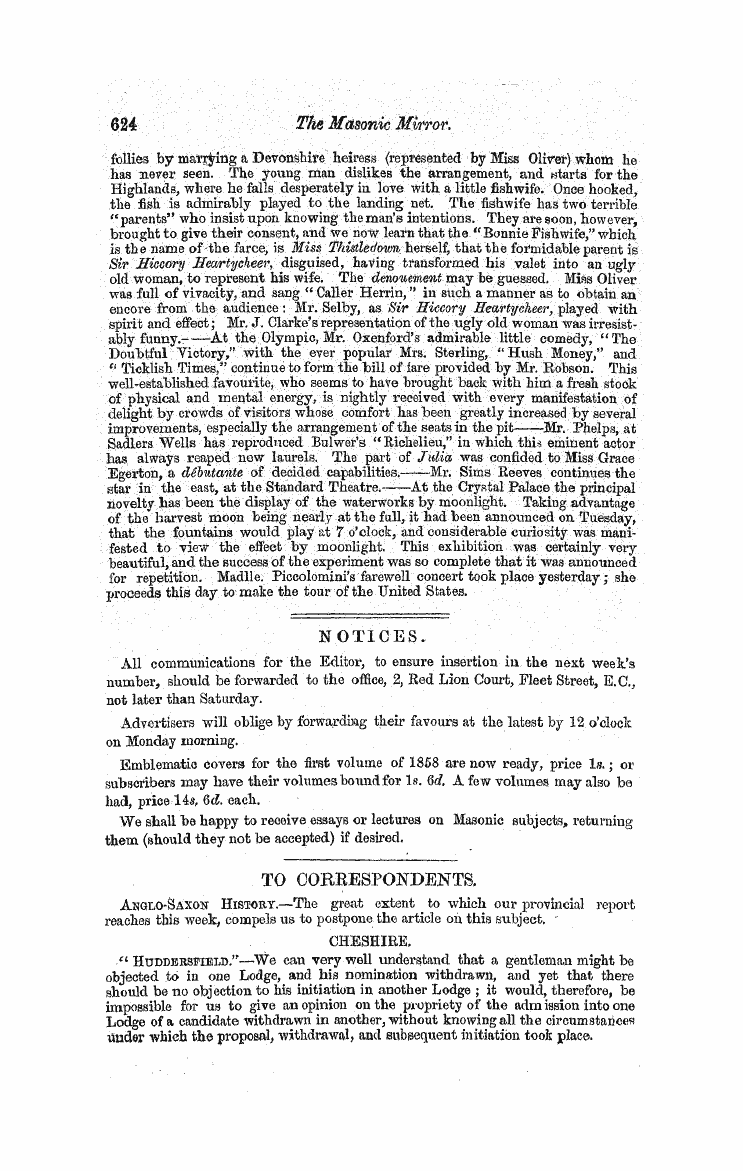-
Articles/Ads
Article A^CLO¦> SAXOH HISTORY ILLUSTRATED BY TOP... ← Page 4 of 5 →
Note: This text has been automatically extracted via Optical Character Recognition (OCR) software.
A^Clo¦> Saxoh History Illustrated By Top...
So far as ethnological and political circumstances are the same , we have in comparative history a tolerably safe guide ; and when we come to apply this uM existing facts present , whether recorded in history , geography , or philology , we may arrive at a very fair judgment . It is , howeve ^ much to be regretted th at
the study of comparative history has been much- neglected in this country . There is no book on the general subject , there is only one work on a portion , and it forms no part of the public courses on history ; and yet it is that part of history peculiarly useful to be taught in our colleges , and indeed necessary , because it is the key of historical judgment . Occasionally an historian or a professor may illustrate sorhe portion of his subject by a comparison with other historical
incidents , assumed to be of a like class , but deficient , it may be , in the ethnological and other elements of comparison— -but as a whole , and as a system , comparative history is ne ^ ected . In a treatise upon it , we should find brought together the invasions , the migrations , the settlements of nations , and a variety of incidents which now are much more frequently of by the ethnologist than by the historian .
It is for want of the test of comparative history that so much history is loosely written , that we have vague theories , the incidents of the past judged of under a modern aspect , the characteristics of one race attributed to another ; and history , instead of beino- the teacher of the statesman , the journalist , and the citizen , is too often the guide to error . This has been the case more particularly in that
portion ot nistory , caned early Anglo-Saxon history , now under consideration , and which has been subjected to successive theories , successive fashions , and successive changes of creed , as facts have been more 01 less neglected . On applying the test of historical experience to the facts which are adduced in reference to the English settlement in Britain , we do not find that they confirm the new theory . It is true there were Germanic auxiliaries in Britain , but there were likewise auxiliaries from all the nations , north , east , west and south in the Roman empire ; but it is not pretended that any but the Germanic auxiliaries maintained a separate' nationality . No attention is paid to the fact that laro-e bodies of Gauls were among the auxiliaries poured into this island
and they would have contributed to strengthen the Celtic nations . In the other provinces of the Roman empire , German and other auxiliaries were employed by the Romans , but it is not pretended that they preserved a distinct nationality , or that Germanic " settlements were there maintained , neither is there any ground for such assumption . In the case of Britain , all corroborative ( immmaf » . rw ^ o '
, wanting . Let us suppose that about the year cSOO , a cohort of Vandals or Burgundians was quartered in Cambridgeshire , we are asked to believe that they continued there , with their wives and children after them , preserving their nationality in resistance to the Romanced population around them , during the existence of the empire and 3 o 2 x '
Note: This text has been automatically extracted via Optical Character Recognition (OCR) software.
A^Clo¦> Saxoh History Illustrated By Top...
So far as ethnological and political circumstances are the same , we have in comparative history a tolerably safe guide ; and when we come to apply this uM existing facts present , whether recorded in history , geography , or philology , we may arrive at a very fair judgment . It is , howeve ^ much to be regretted th at
the study of comparative history has been much- neglected in this country . There is no book on the general subject , there is only one work on a portion , and it forms no part of the public courses on history ; and yet it is that part of history peculiarly useful to be taught in our colleges , and indeed necessary , because it is the key of historical judgment . Occasionally an historian or a professor may illustrate sorhe portion of his subject by a comparison with other historical
incidents , assumed to be of a like class , but deficient , it may be , in the ethnological and other elements of comparison— -but as a whole , and as a system , comparative history is ne ^ ected . In a treatise upon it , we should find brought together the invasions , the migrations , the settlements of nations , and a variety of incidents which now are much more frequently of by the ethnologist than by the historian .
It is for want of the test of comparative history that so much history is loosely written , that we have vague theories , the incidents of the past judged of under a modern aspect , the characteristics of one race attributed to another ; and history , instead of beino- the teacher of the statesman , the journalist , and the citizen , is too often the guide to error . This has been the case more particularly in that
portion ot nistory , caned early Anglo-Saxon history , now under consideration , and which has been subjected to successive theories , successive fashions , and successive changes of creed , as facts have been more 01 less neglected . On applying the test of historical experience to the facts which are adduced in reference to the English settlement in Britain , we do not find that they confirm the new theory . It is true there were Germanic auxiliaries in Britain , but there were likewise auxiliaries from all the nations , north , east , west and south in the Roman empire ; but it is not pretended that any but the Germanic auxiliaries maintained a separate' nationality . No attention is paid to the fact that laro-e bodies of Gauls were among the auxiliaries poured into this island
and they would have contributed to strengthen the Celtic nations . In the other provinces of the Roman empire , German and other auxiliaries were employed by the Romans , but it is not pretended that they preserved a distinct nationality , or that Germanic " settlements were there maintained , neither is there any ground for such assumption . In the case of Britain , all corroborative ( immmaf » . rw ^ o '
, wanting . Let us suppose that about the year cSOO , a cohort of Vandals or Burgundians was quartered in Cambridgeshire , we are asked to believe that they continued there , with their wives and children after them , preserving their nationality in resistance to the Romanced population around them , during the existence of the empire and 3 o 2 x '































































































































































































